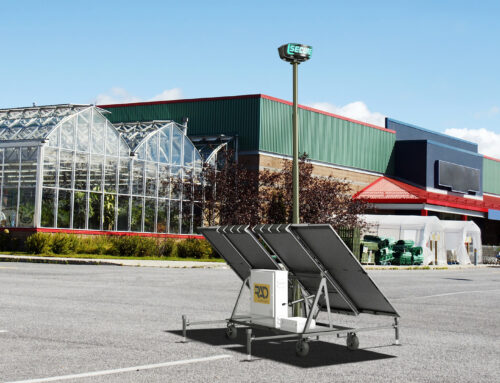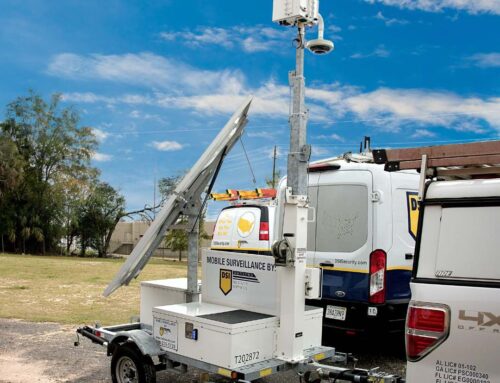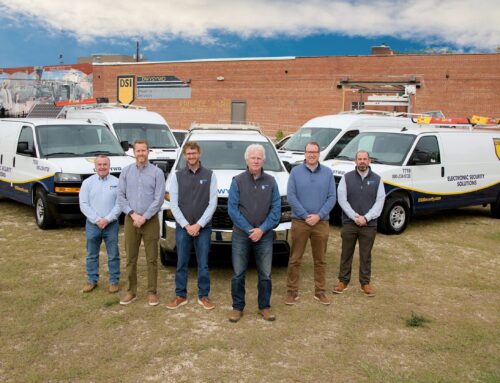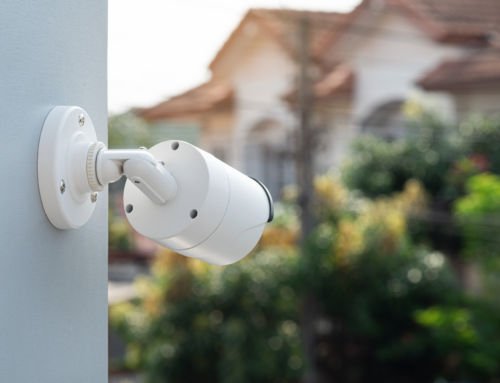
By: David Crow
Regional Sales Director, DSI Security Services
Relationship: “the way two or more concepts, objects, or people are connected, or the state of being connected.” The basic definition is at the core of how we do business. We spend a lot of time in this space discussing the constantly evolving requirements, culture, technologies, and methodologies that are driving the security industry. In a sea of continuous change, the importance of relationships is one bit of solid ground that remains an essential component of any protection partnership.
The basics of security remain the same as they were 170 years ago when the concept of the modern security service first came about. Put simply, the security team is trusted with protecting what is important to the client. That hasn’t changed since Allan Pinkerton first contracted his services to safeguard railroad passengers and cargo in 1850. He set the stage for modern security because he established strong relationships by making good on his commitment to protecting his clients.
Many aspects of the security industry have changed since the days of six guns and locomotives, however, and it seems like the pace of change gets faster every year. Impactful events, emerging threats, and societal changes result in shifting methodologies. Policies and regulations affect the way security services operate. Changes in the way businesses operate have necessitated different levels of protection. New technologies have also driven massive amounts of change in the industry over the past decade.
Relationships Are Personal and Evolving, Too
The way people regard and behave towards each other changes over time. While many things have changed in the contract security industry, the importance of relationships has only grown. The increased complexity of security requirements and solutions has only increased the need for service providers and clients to fully understand and trust each other.
Without good, transparent relationships, the feedback and support needed to build an effective security solution will be lacking. Relationships remain critical to success.
From the very founding of DSI Security Services, the focus has been on developing relationships and creating a level of trust with clients by meeting and exceeding expectations. Early on, Alan Clark coined the simple phrase, “Do What You Say You Will Do,” or DWYSYWD to effectively convey his vision of how DSI should operate. More than just a motto, DWYSYWD is at the core of DSI’s mission. As Alan has stated, “if you don’t believe in our philosophy, you won’t be here long.” The importance of relationships and the reliability that makes them possible are at the heart of DSI’s business to this day.
Trust and Confidence Are Key
I recently asked a number of team members, clients, and friends to describe what a business relationship means to them. Attentiveness, respect, confidence in action, honesty, commitment, and responsiveness were recurring answers from all the people I talked to. Consistency, commitment, partnership, trust, and communication were the most common answers from clients, while confidence in action, attentiveness, respect, and honesty were cited the most often among team members. It’s interesting to see variations among responses, yet all seem to lead to the importance of trust and confidence.
A security vendor has to show empathy, attentiveness, and, most importantly, respect for not only the situation, culture, and environment of the client organization, but also for the individual partner they are working with. It is the relationship with that person that will uncover what is important to the company and therefore what is most important to protect. A new security program will certainly bring about some changes and it takes trust, transparency, and commitment to ensure that new solutions and applications are embraced by the team. I was taught at an early age that the way to embrace and accept change is through communication, listening, learning, and sharing. Unsurprisingly, these are key components of a relationship!
Embracing Change Together
A good example of change in the security industry is the increasing incorporation of technology. The concept of integrating technology with manpower has been around for years, but in just the past few years, technology has evolved and advanced so rapidly that its potential cannot be ignored. Applications can provide services and information that create a more reliable response and provide a team on the ground with better information so that they can act faster and more reliably. Technology has also provided us with data that allows us to enter into conversations with data and information already at our fingertips so the discussion doesn’t start at the beginning, but somewhere in the middle.
Perhaps the biggest challenge to the adoption of technology is the fear from clients that it will eliminate the human element so necessary for good protection, and the fear from team members that it will eliminate jobs. Neither of these concerns are warranted when technology is employed well, but communicating that idea is critical.
Once again, it’s the relationship with the client and team members that can make that discussion possible.
As a security vendor, we have to be invested in our knowledge, experience, and growth, but more importantly, invested in our relationships. We earn trust by delivering, learning, and nurturing our partnerships. We also have to be honest. It’s great when we can apply what we already know and have, but we must be prepared to admit that we need to find new solutions and answers when presented with changing conditions. That’s transparency, and it’s an important part of building a lasting relationship.
Our society is rapidly evolving and so are the threats against our communities, businesses, and institutions. Today it might be a threat against our physical security layout or structure, tomorrow someone could be “hacking” the system. Whatever it is, a relationship between trusted business partners that can act as mutual confidants can assure that the threat is identified and mitigated, whether with conventional security guards or with high-tech augmentation.
We must be that partner that can have the conversation and will honestly and transparently engage with facts, ideas, and concepts. We must be that partner that demonstrates respect, trust, confidence in action, commitment, and reliability. Security is built from strong relationships both internally and externally. We must be that partner who is committed to doing it right and building that relationship!






